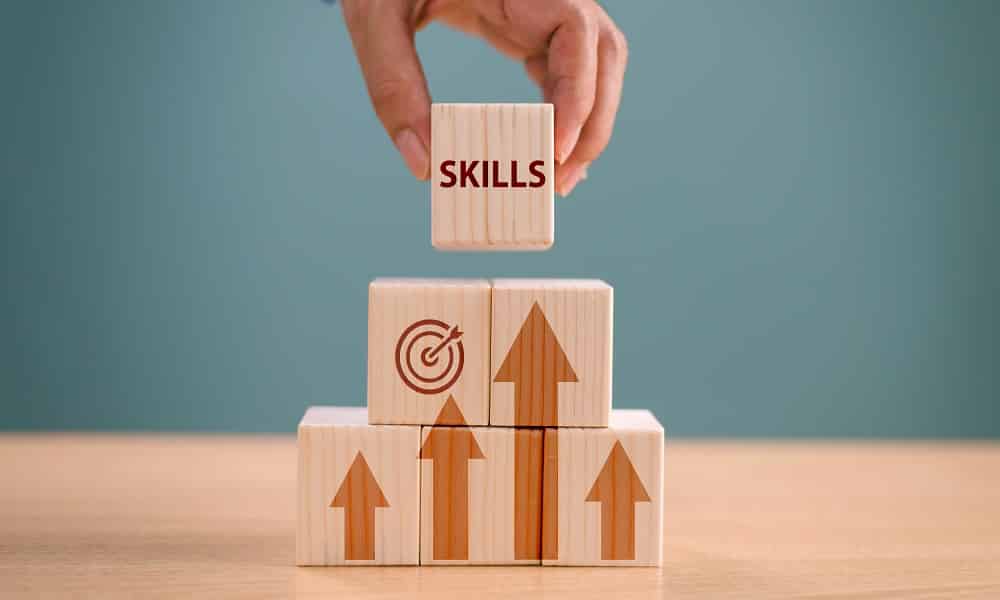Today’s job market is changing so fast. Staying ahead often means more than just working hard—it’s about learning smart. Whether you’re eyeing a promotion, switching careers, or simply looking to sharpen your skills, the right study resources can make all the difference.
But with so many options out there and limited time and money to spare, how do you know when it’s the right time to invest? In this article, we’ll explore the moments when it makes sense to dive in and how to choose resources that truly help you move forward in your career.
Economic Timing and Market Conditions
Economic cycles significantly influence career development opportunities, offering unique advantages during downturns. When organizations reduce training budgets to focus on essential operations, a gap in talent development emerges. This creates an opportunity for individuals to stand out by taking the initiative to upskill, especially in areas that contribute to cost-saving or efficiency improvements. For example, mastering process automation or lean methodologies during a recession can enhance your value to employers.
Economic slowdowns also drive industry shifts, such as the adoption of remote work technologies or sustainability practices, making this an ideal time to develop expertise in emerging trends that will shape the recovery phase.
Additionally, preparing for post-crisis demands by anticipating trends—such as risk management expertise following the 2008 financial crisis—can position you ahead of the curve. Employers value individuals who demonstrate resilience and forward-thinking by proactively pursuing professional growth. Plus, downturns often present financial advantages for learning investments, as training providers and institutions may offer discounts or scholarships to attract participants.
It’s equally important to have study resources you can access anywhere. If you’re preparing for a Praxis exam, for instance, there are comprehensive Praxis study guides and resources today that can be accessed in a single app, allowing for better customization and a much easier progress tracking.
Technological Evolution and Industry Transformation
The adoption curve of new technologies—ranging from early innovation to widespread acceptance—offers valuable insights for planning educational investments. Early in a technology’s lifecycle, resources like certifications or training programs are often scarce and costly, but mastering them at this stage can position you as a trailblazer in your industry. For instance, professionals who embraced blockchain technology early on found themselves in high demand as industries began integrating decentralized systems.
But here’s the thing: as the technology matures, learning resources become more accessible and affordable, but the competitive edge gained by being an early adopter often diminishes.
To navigate this landscape effectively, it’s essential to monitor technological trends and align your learning efforts with your industry’s trajectory. Focus on technologies that enhance your existing skill set rather than replace it, ensuring your expertise evolves in step with industry needs. For example, a marketing professional could expand into data analytics to leverage AI-driven insights, while a mechanical engineer might explore IoT applications to improve smart manufacturing processes.
Organizational Change and Corporate Evolution
Periods of organizational transformation, such as mergers or acquisitions, present valuable opportunities for proactive skill development. These shifts often expose capability gaps as companies adapt to new priorities, markets, or operational models. Professionals who anticipate these needs and upskill accordingly can position themselves as indispensable contributors to the transition. Similarly, major restructuring may highlight the need for process optimization skills, change management expertise, or proficiency in new technologies implemented to streamline operations.
The timing of skill development during these changes is critical. The window immediately following change announcements but before formal training programs are introduced is a sweet spot for identifying and addressing emerging needs. For example, if a company shifts focus to a new market, learning about regional regulations, customer behavior, or supply chain logistics can help you adapt before others do.
Career Stage Optimization
The decision to invest in education should align with the unique needs and opportunities present at different stages of your career.
Early-career professionals, for example, benefit from prioritizing foundational skills that provide versatility and a solid platform for growth. These might include technical skills, like coding for tech roles or financial modeling for business positions, as well as soft skills, such as communication and teamwork. At this stage, the focus should be on acquiring a broad skill set that can be applied across multiple roles or industries, ensuring the flexibility to explore and adapt as career paths take shape. Additionally, certifications or short courses that establish credibility, like entry-level project management or language proficiency exams, can help young professionals stand out in competitive job markets.
For mid-career and senior professionals, the educational focus shifts to more strategic considerations. Specialists at the mid-career stage often face the decision of whether to deepen expertise in their current field or broaden their skill set to prepare for leadership or cross-functional roles. If you’re a data analyst, you may invest in advanced data science tools or pivot toward managerial skills to oversee analytics teams.
Senior professionals, on the other hand, should emphasize staying ahead of industry trends and gaining strategic insights that complement their extensive experience. This could involve studying emerging technologies, global market trends, or executive leadership principles.

Resource Alignment and Learning Ecosystem
The availability of learning resources extends far beyond traditional educational institutions and training programs. The modern professional learning ecosystem includes mentorship opportunities, professional networks, practical applications through work projects, and access to industry thought leaders. The convergence of these resources creates optimal learning windows that might not align with traditional educational timing. For instance, the presence of a particularly skilled mentor, involvement in an innovative project, or access to new technology implementations can create unique learning opportunities. Success often comes from recognizing these moments and having the flexibility to capitalize on them.
Sustainability and Long-term Market Positioning
The sustainable development of professional capabilities requires aligning educational investments with long-term market trends while maintaining sufficient flexibility to adapt to unexpected changes. This involves understanding not just current skill demands but anticipating how your industry might evolve over the next five to ten years.
Climate change considerations, demographic shifts, and geopolitical factors increasingly influence skill requirements across industries. Professionals who develop expertise in these areas while maintaining their core competencies often find themselves well-positioned for long-term career growth.
Final Words
The effectiveness of educational investments is significantly influenced by personal readiness and life circumstances. This encompasses financial stability, time availability, mental bandwidth, and support systems. Major life transitions, whether planned or unexpected, can create natural opportunities for skill development. However, these opportunities must be balanced against personal constraints and obligations. The key is developing a realistic understanding of your capacity for additional learning while maintaining professional performance and personal well-being. This might mean spacing out learning investments to align with personal circumstances rather than trying to perfectly time market opportunities.


